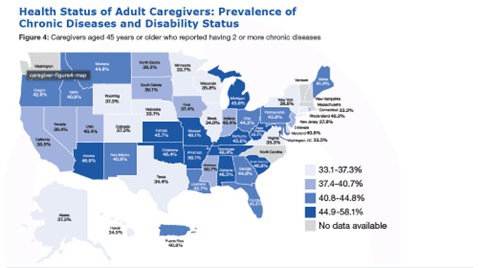September is Healthy Aging Month. It is a time to pause, ponder, and consider the potential we have before us to take the concept of healthy aging to the next level. Healthy aging is often defined as “the development and maintenance of optimal physical, mental (cognitive and emotional), spiritual, and social well-being and function in older adults.”
What needs to happen to take all those components to the next level? Multi-sector collaboration, coordination, funding, and prioritization of the health and social needs of older people.
Collaboration: Most policy actors understand that policy and systems changes do not happen without unified, strategic planning and working across sectors to achieve the desired changes. The power of a collective impact approach is its ability to bring together the aging services, healthcare, public health, and community sectors to work together to assess and understand the needs of older adults in any given community.
Coordination: Once the above systems are assessed for their strengths or gaps in providing age-friendly services, sectors can come together to coordinate activities and interventions to reduce duplication and maximize the distribution of limited public resources for programs and services that support older people, their caregivers, and their families.
Investment: Funding is a much-needed aspect of providing systems and services that support healthy aging, but advocates face numerous challenges in securing additional funding for older adult programs. Since much of what happens in older age can be attributed to lifestyle choices in early age, funding healthy habits all along the life course is one way to reduce demands on the long-term care system. Unfortunately, the return on investment is also long-term and therefore often a hard one for policymakers to see and act on.
Prioritization of healthy aging, from birth to the end of life: This process may take the form of addressing the social and economic issues that impact health at the community level, as well as dismantling the systemic structures that lead to health disparities. Prioritizing healthy housing, access to nutritious food sources, quality education, quality healthcare, and other community supports that lift all people will inevitably improve the opportunities for all people to grow older with optimal physical, mental, spiritual, emotional, and social health and function. It’s up to everyone to see ourselves in this process and make our communities better for all.





